Calories in Peanut Butter, smooth (Includes foods for USDA's Food Distribution Program)
1207 calories
Serving Size 12 tbsp (about 192 g)
There is no photo available for this food item however it should be similar in terms of nutritional content and calorie density as the following items. You can use these for references.
(99% similar)
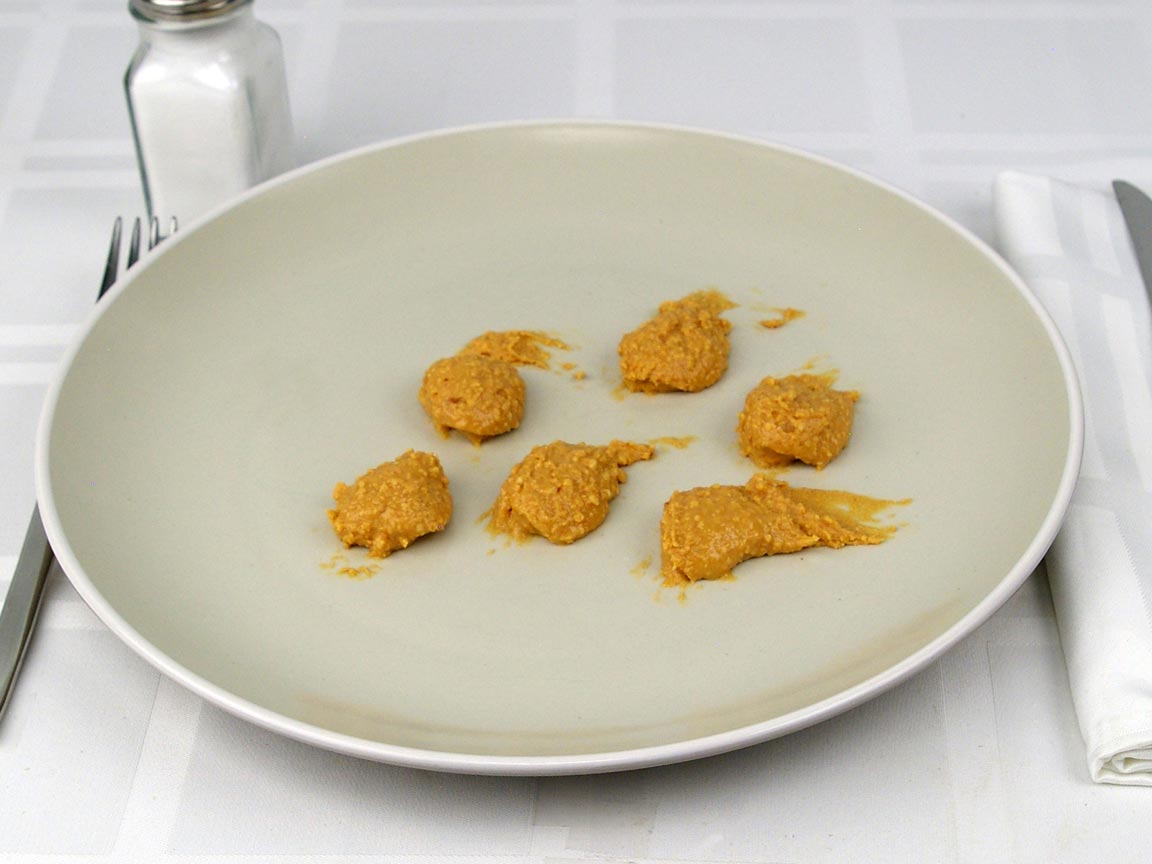
Peanut Butter - Crunchy
(99% similar)
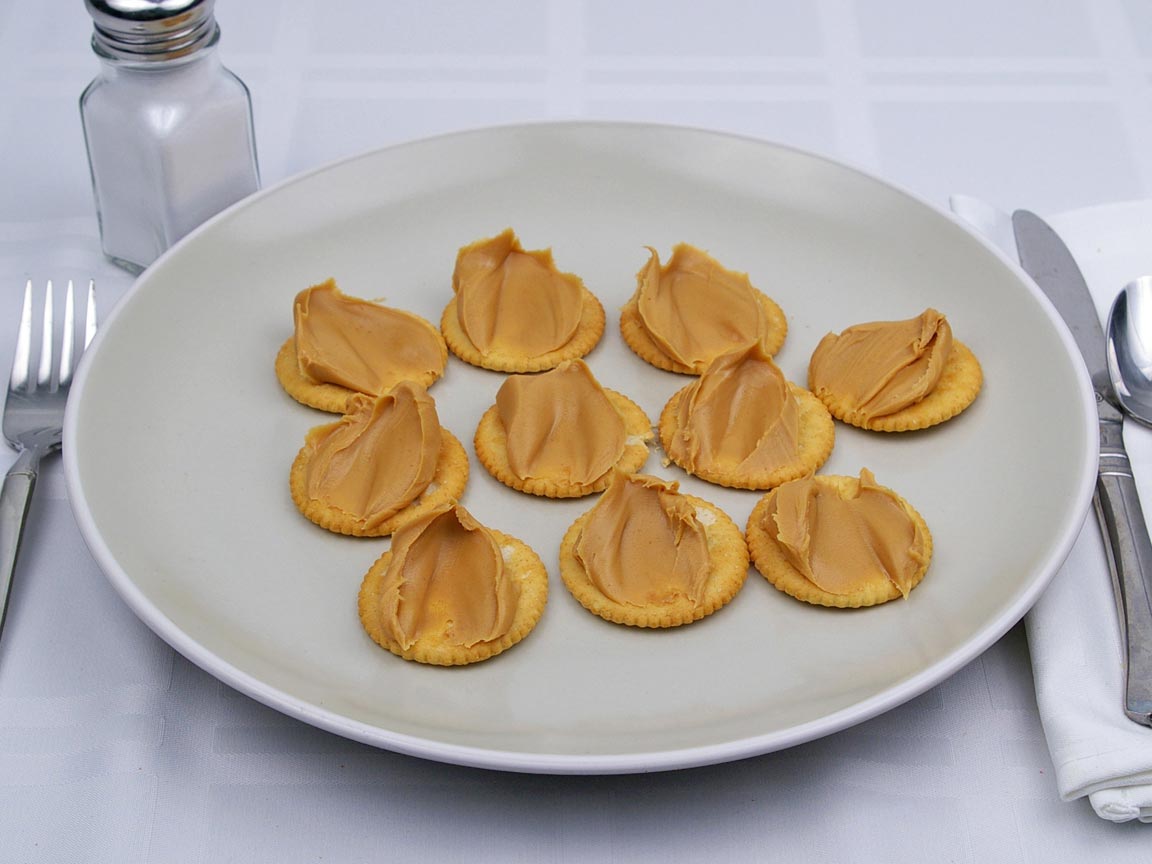
Peanut Butter - Creamy - (Just Peanut Butter)
(98% similar)
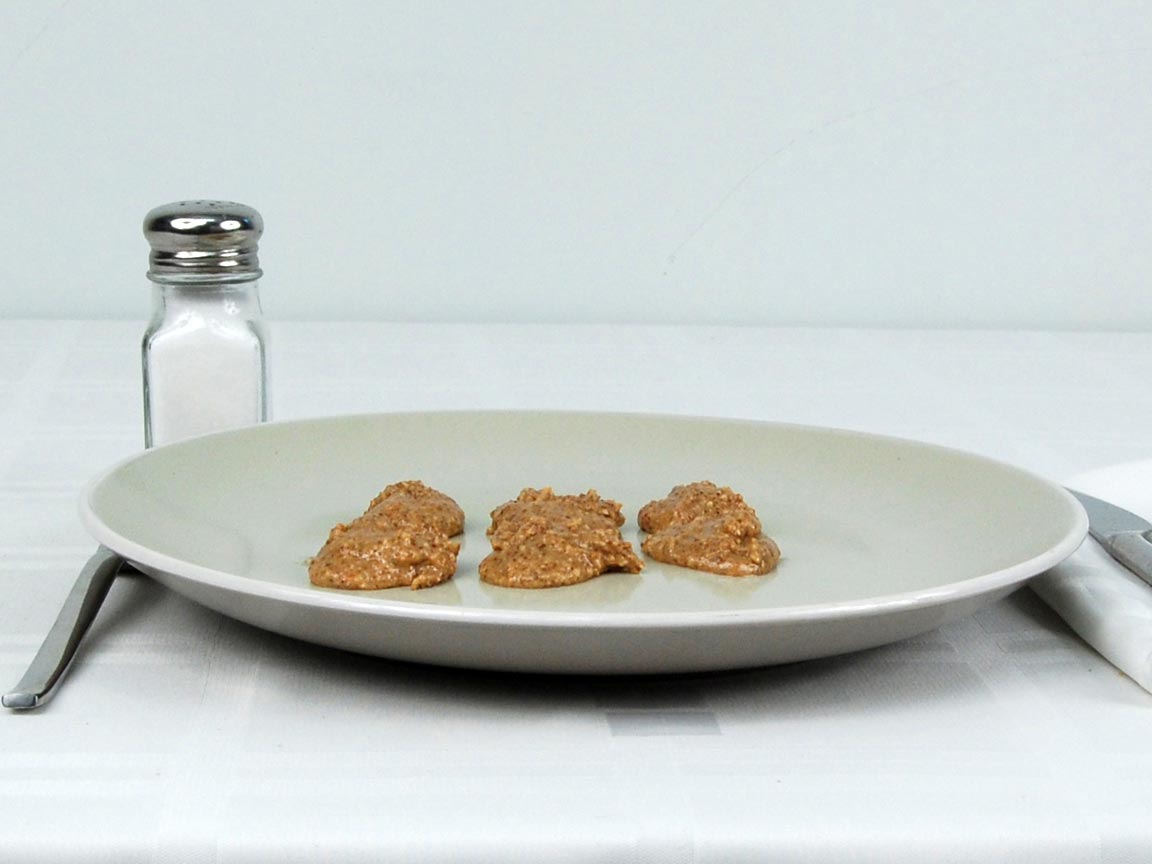
Cashew Butter
(96% similar)
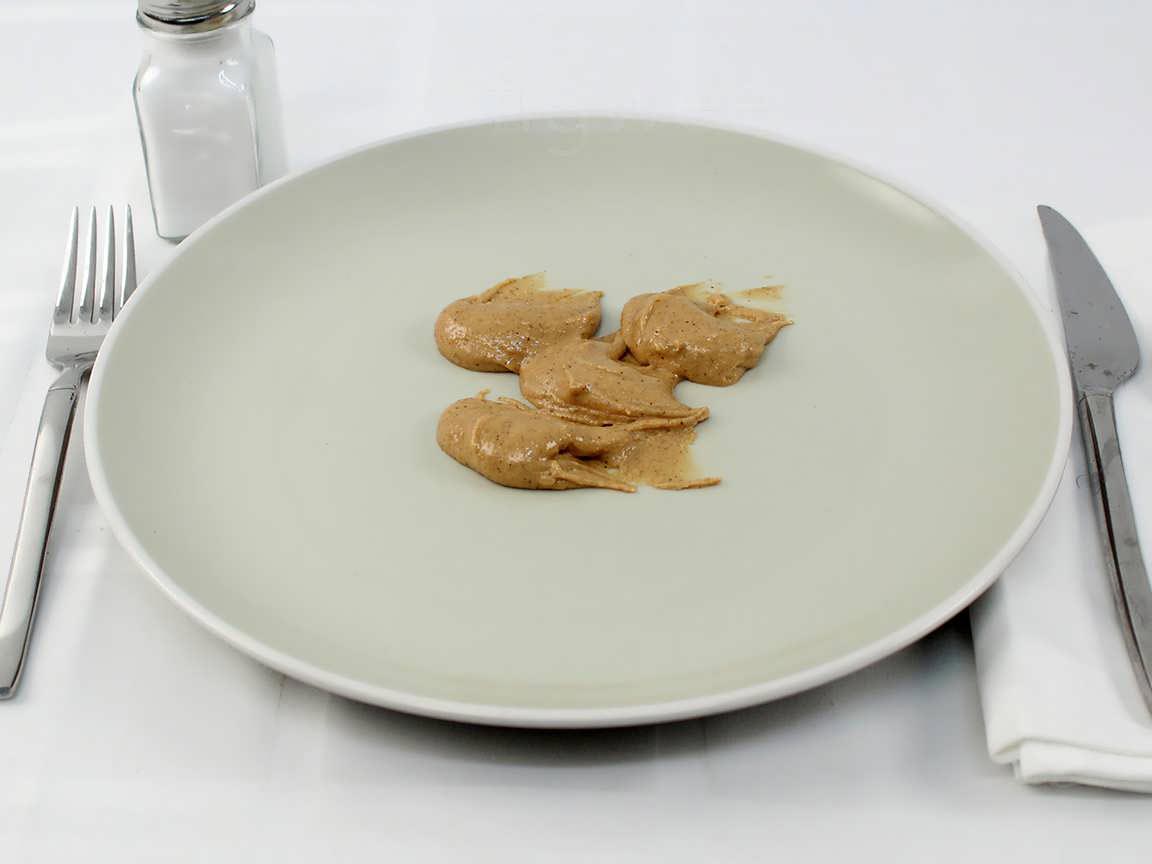
RX Vanilla Almond Butter
(98% similar)
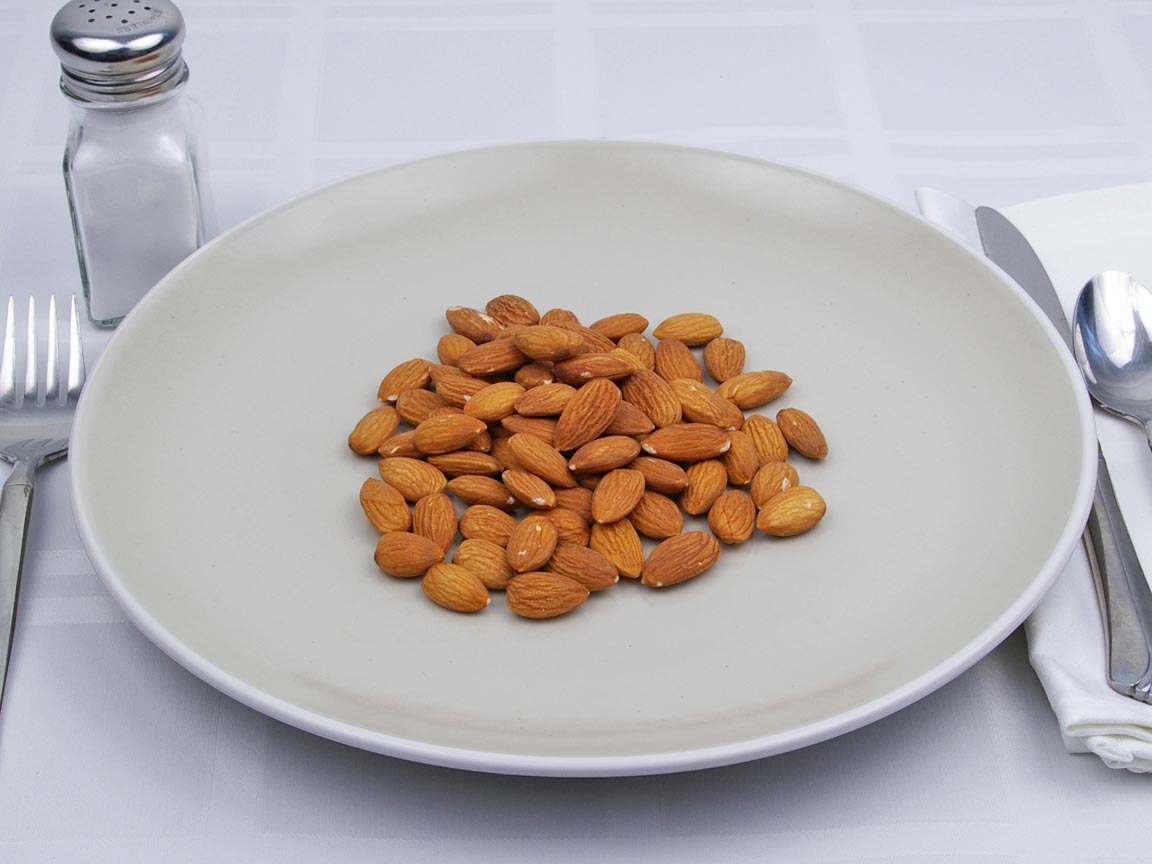
Almonds - No Salt
(98% similar)
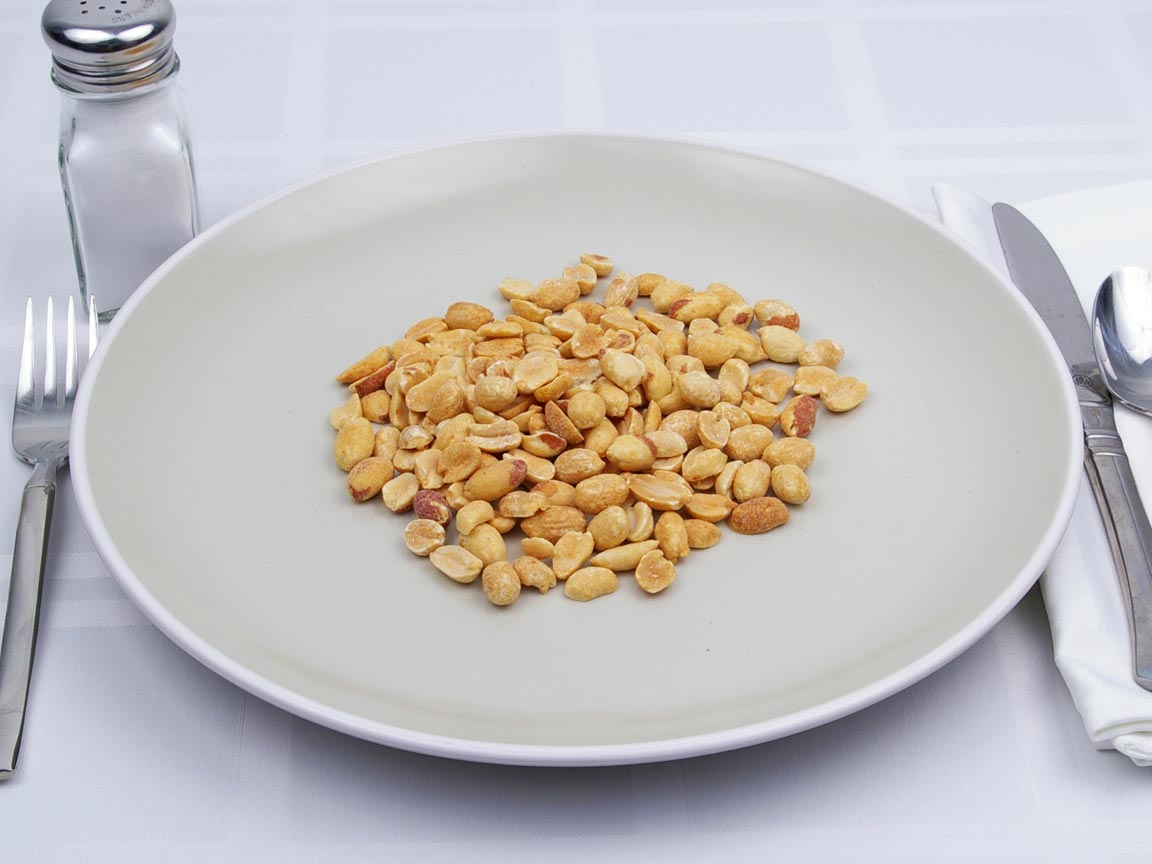
Peanuts - Dry Roast - Salt
Serving Size 12 tbsp (about 192 g)
| Amount Per Serving | ||
|---|---|---|
| Calories 1207 | Calories from Fat 856 | |
| % Daily Value* | ||
|
Total Fat
95 |
146 |
|
|
Saturated Fat
18 |
90 |
|
|
Trans Fat
0 |
||
|
Cholesterol
0 |
0 |
|
|
Sodium
913 |
38 |
|
|
Total Carbohydrate
46 |
15 |
|
|
Dietary Fiber
10 |
40 |
|
|
Sugars
12 |
||
|
Protein
42 |
||
* Percent Daily Values are based on a 2,000 calorie diet. Your daily values may be higher or lower depending on your calorie needs.
Available portions
Food analysis
High In Fiber
High Sodium
High In Sugar
High Calorie Density
There is 1,207 calories in 192 grams of Peanut Butter,.
With 617 calories per 100 grams, this food would be considered a High calorie density food.
Be carefull, High calorie density food tends to add up calories quickly and you should be carefull with your portion size if you are trying to lose weight.
Peanut Butter, is Medium in carbohydrates, Medium in proteins and High in fats. You can look at the macronutrients graph below for a detailed ratio.
It has High quantity of fibers but also High quantity of sugars. It is recomended to consume less than 25 grams of sugars per day.
With 18 grams of "Net carbohydrates" per 100 grams,
it not safe to consume if you are following a Keto or Ketosis diet.
Related Searches
peanut
butter
smooth
includes
foods
for
usda's
food
distribution
program
Macronutrients split
14.9% Carbohydrates
71.5% Fats
Nutrients and how much we eat of it play an important role on our health and body composition. To learn more on theses, check our blog posts on Proteins, Carbohydrates and Fats.